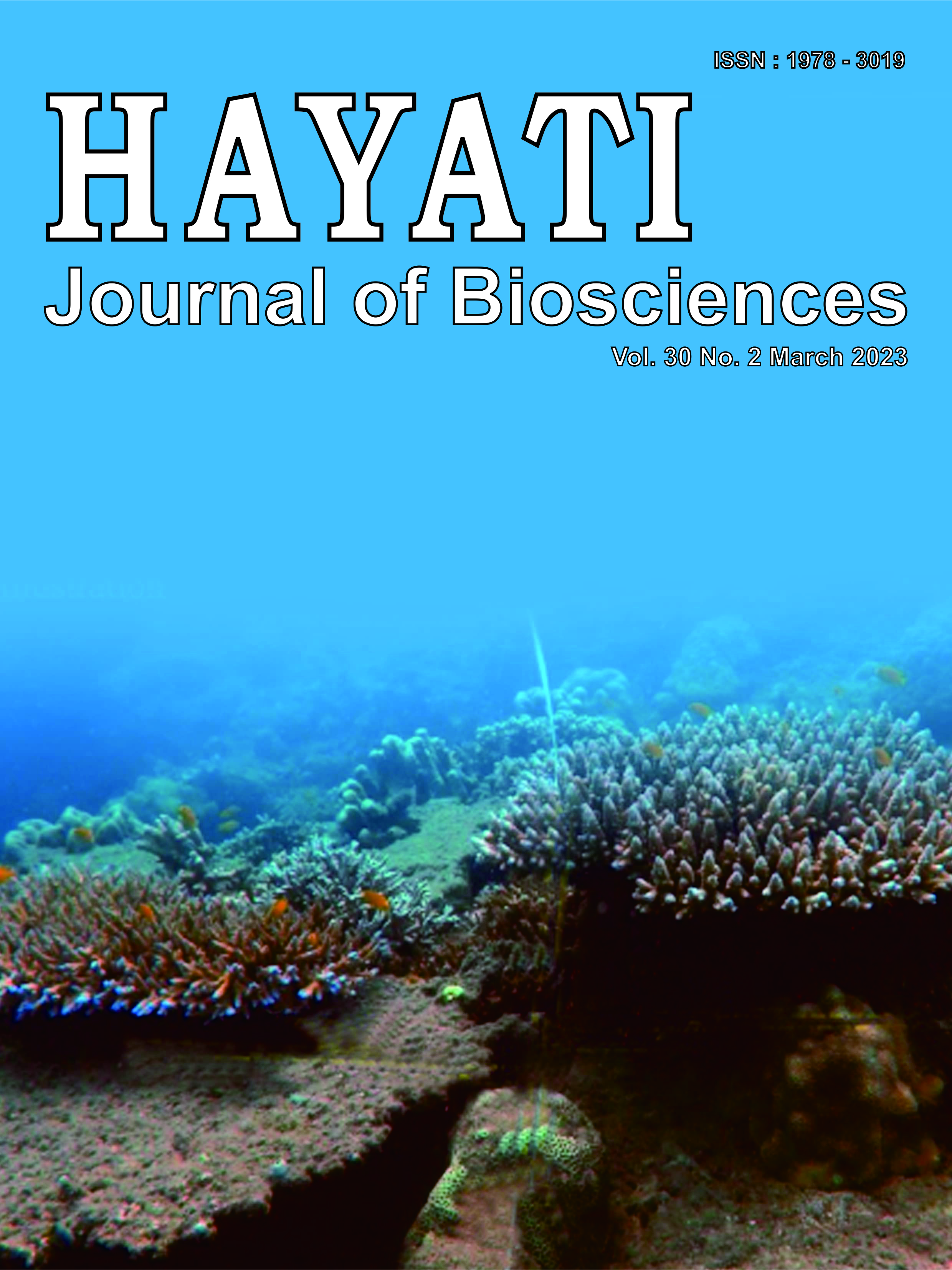Increasing The Stocking Density of Grouper Nurseries for Aquabusiness Efficiency in Recirculating Aquaculture System (RAS) with Bioremediation
Abstract
Water quality improvement was carried out by means of recirculation and bioremediation systems in grouper nurseries with high stocking density, thereby increasing production performance. The goal of this study was to evaluate the effectiveness of aquabusiness by analyzing the rise in grouper nursery stocking density using RAS and bioremediation systems. The test parameters consist of production performance, blood glucose levels, physic-chemistry-biology of water quality, and business efficiency based on productivity and business analysis. Treatment of 1,000 fish/m3 increased survival, blood glucose levels, total bacteria, Vibrio spp., ammonia, nitrite, and all productivity parameters. But it lowers all growth parameters, pH, and dissolved oxygen values. The recirculation system with bioremediation at up to 1,000 fish/m3 of stocking boosted the profit by 2.64 times. and 14.97% more efficient than 500 fish/m3 which could not be matched by the high production performance.
Downloads
Copyright (c) 2023 Belinda Astari, Tatag Budiardi, Suko Ismi, Irzal Effendi, Yani Hadiroseyani

This work is licensed under a Creative Commons Attribution-NonCommercial 4.0 International License.
HAYATI J Biosci is an open access journal and the article's license is CC-BY-NC. This license lets others distribute, remix, tweak, and build upon author's work, as long as they credit the original creation. Authors retain copyright and grant the journal/publisher non exclusive publishing rights with the work simultaneously licensed under a https://creativecommons.org/

























.png) IPB University
IPB University Department of Biology
Department of Biology The Indonesian Biological Society
The Indonesian Biological Society 

